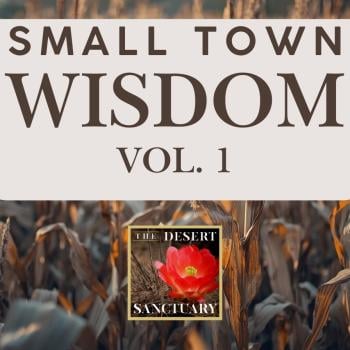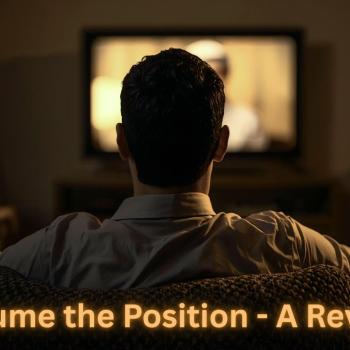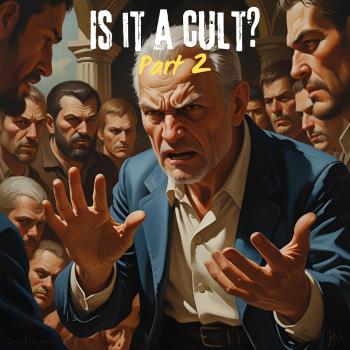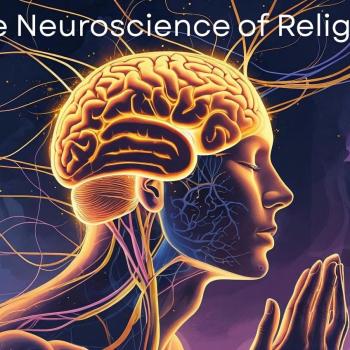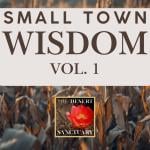
Excerpt from the book Copyright © 2025 by Karl Forehand
Learn to Trust Yourself
“When you reach the end of what you should know,
you will be at the beginning of what you should sense.”
– Kahlil Gibrán
Organized religion and many other institutions operate under the mistaken belief that we cannot trust ourselves due to our inherent flaws. We often think leaders possess a unique ability that distinguishes them from others, leading us to defer to and submit to them.
In these organizations, both actual and perceived hierarchical structures rely on a certain level of shame to maintain control and functionality. The organization consistently takes precedence over the individual, and one of the Christian teachings asserts that we cannot trust our intuition because of our inherent flaws. Consequently, in my tradition, I was taught to trust and obey—and to keep questions to a minimum!
The Leadership Myth
There is a common misconception about leaders, especially in religious contexts. We often view leaders as nearly supernatural beings with exceptional qualities that seem to justify high salaries for managing our organizations. While some leaders may indeed possess natural talents that draw us in, more often than not, they are determined individuals willing to take risks. In reality, many—especially men—seek control and tend to follow a strong leader to gain some of that leader’s influence. Ultimately, determination and persistence are more important than natural talent or acquired skills.
Indeed, skills such as communication and decision-making can be developed; however, no supernatural or extraordinary qualities render someone 100 times more valuable than those who may not have had the fortune of being in the right place at the right time. In the 21st century, it’s clear that sometimes being difficult is just as significant as intelligence or any so-called “God-given” talent. Narcissistic leaders primarily care about themselves, and nowhere is the narcissistic leader more prevalent than in organized religion!
Religion, much like the corporate world, can be pretty confusing. While thousands of people write books on effective leadership, much of it involves speculation and false equivalence. Sometimes, leaders can be as foolish as a post and possess no magical abilities. In the realm of religion, they maintain the belief that they are right, and that God is on their side. They stubbornly cling to this conviction, as their persistence is their greatest asset.
Leadership is primarily a learned skill, with the necessary abilities differing across various situations. The average employee often possesses more skills that allow them to perform their job effectively than many leaders ever did. In many instances, the assembly line worker exerts significantly more effort and excels at their job more than the leader. Leadership can greatly benefit from listening to employees and parishioners more frequently. Survivors of abuse consistently urge us to listen to their stories to gain valuable insights.
What we admire most in religious leaders is their perceived charisma. Much like movie stars, their public image can indeed be crafted. We want to believe that they are genuine and authentic. Still, my experience, particularly with religious leaders, is that they are often very troubled individuals beneath the surface and in private. They can’t fully articulate why people are drawn to them, but they thrive on the energy of others, accept money from people, and receive their free time in the form of voluntary labor.
We often buy into leadership myths and use terms like “follow” and “submit” to describe our relationship. We convince ourselves that we can gain some of their power and favor with God by supporting them. The very reason we believe we need what they possess comes from a widespread, manipulative notion that we are inherently flawed.
The Doctrine of Depravity
For most Protestant Christians, I think I don’t really need to explain this common belief. It encourages people to embrace our religious system because we are perceived as incapable of connecting with God due to our sinful nature. It depicts an immoral person who lacks the inherent ability to relate to God since the one who created these flawed beings is perfect.
You see the apparent contradiction, don’t you? A perfect God supposedly created an imperfect being that disobeyed the Holy One. Many people going through deconstruction are deeply examining this idea. How can we be so utterly depraved when, according to the narrative, we were made by a perfect deity?
This worldview collapsed immediately after our first grandchild was born. When my wife, Laura, gazed into the eyes of our daughter’s baby, she saw nothing but goodness, purity, and love. We had recognized this in our children in many ways but were too exhausted and busy to notice back then. We had already been indoctrinated with the idea that we were hopelessly wicked and somehow useless to God without the specific religion-prescribed cure. We don’t even have time to discuss the fact that most of them don’t agree on the cure, and there are thousands of different beliefs about what God is like and who their deity approves of.
A Benedictine nun once told me, “None of us is right,” which likely contradicts some of her tradition’s understanding of our supposed “partial” depravity. I didn’t convert to Catholicism, but it made me reflect and explore the complexities of my inherited beliefs.
My tradition often quoted the verse that even my righteous acts are like “filthy rags.”[1] Popular contemporary worship songs manipulate followers by saying, “There is nothing good in me.”[2] Calvinism, a branch of Protestant Reformed theology, asserts in its first tenet[3] that we are totally depraved, and then immediately points to the unconditional election of some in the second. This line of thinking leads congregants to accept the solution, regardless of its merit, because it creates a scenario where we cannot “succeed” without it.
Instead of spending an excessive amount of time defending my thoughts and countering their ideas, I’ll express that I don’t recognize this cruel and manipulative worldview in the world I inhabit. I observe individuals entirely outside of religion who lead morally upright lives. Conversely, I encounter people within the church who are among the worst I have ever known. I see white individuals demonizing people of color in the church, and then I witness their children taking the lives of their peers in mass shootings, often due to the trauma inflicted by their “saved” parents.
The issue of immorality is not something that religion addresses effectively. It instills a fear that we cannot trust ourselves and are inherently wicked unless we accept their solutions. Some individuals commit immoral acts, often due to their religious trauma or experiences with high-control churches and faiths. However, I believe, and have observed, that there is goodness within all of us, and we reveal this goodness when we look inward and learn to trust ourselves rather than rely on a fabricated solution designed to answer the question, “Why is there evil in the world?”
The Role Religion Plays
Religion is an organization. I recognize that it is also a community, albeit one that resembles a false community, failing to genuinely reflect reality. There are advantages to being part of a group and appreciating the benefits of community. However, since it is not a natural community, it suffers from all the shortcomings of a typical corporation or other volunteer organization. Religion lacks the inherent power to tackle the challenges we face.
The inherent shortcomings of religion are similar to those of other organizations. Namely, the most significant factor is that the organization comes first before the individual in an organization. The only individual in an organization that rivals the importance of the organization is the very top leadership. They can shut down the organization or temporarily delay its functioning for their own benefit. However, individuals usually can’t impact the organization significantly unless they organize into another organization. Then, it’s still the priority of organizations to make money, attract and maintain members and/or employees, and keep investors, customers, and members happy.
When was the last time you saw someone interrupt the pastor’s message to ask a question or share a concern? When did the last worship service get delayed so members could discuss their mental health issues and unresolved trauma? Have you ever noticed a significant amount of funds that religious organizations dedicate to addressing trauma? How often have you observed religious organizations continuing their usual activities while neglecting instances of abuse within the congregation?
When survivors of abuse, or even those raising concerns or questions, are often viewed as troublemakers in various ways, they are encouraged to “get on the bus” and stop impeding the organization’s progress. The organization’s objectives and goals are intricately crafted by the appointed leadership, who rarely accept criticism or honest questioning.
Followers are often reminded that they are inherently corrupt and should not trust their intuitions, emotions, or feelings, even though that is precisely what the leadership does. Since a myth surrounds the leaders, they apply different standards to their intuition and essential goodness. We learn from experience not to develop or trust our intuition and not to entertain our doubts because we are fundamentally flawed.
Voices From the Desert
We interviewed hundreds of individuals on our podcast, The Desert Sanctuary. When we asked those who were deconstructing what helped them the most on their journey, they emphasized one key insight more than any other: they learned to explore within themselves and to trust and nurture their intuition. While they all encountered trusted guides along the less-traveled path, they ultimately discovered something good within themselves. They realized they could access it with practice and uncover goodness, purpose, morality, and direction there.
Personally, I have also observed this understanding in various organizations around the world and throughout history. The interesting aspect is that it’s not limited to a single place, as most belief systems contain elements of goodness. However, they can also fall prey to power, control, and corruption when they think they are the only ones who are right, and God is on their side. For instance, a Catholic tradition of centering prayer and mindfulness practices from different places and times has benefited me.
I no longer consider myself a Christian and don’t spend much time reading the Bible, but I agree with the apostle Paul that some parts of it are “useful,” like loving your neighbor and treating others as you would like to be treated. Since the Bible presents conflicting ideas, we can still find valuable insights if we trust ourselves to develop our intuition and pay little attention to the religious hucksters who peddle their contrived solutions.
We relinquish our power and voice when taught not to trust ourselves. Those assigned to determine what is best for the organization rarely have time for input from the individuals who sit in the sanctuary. The authorities who dictate what to believe, how to act, and what we should focus on seldom seek feedback from those not appointed to leadership. Religious institutions have historically overlooked valuable insights from the broader population.
One example of this, which is quite damaging, is when religious institutions respond inadequately to reports of sexual abuse. Prioritizing their reputation over the well-being of victims can lead to further trauma and more victims. Over the course of history, religion has proved deficient at listening to concerns of discrimination and exclusion. Religion-backed crusades have been responsible for many deaths, even though some cried out for restorative justice. From suppression of dissenters to ignoring health and safety concerns, narcissistic leaders forge ahead, sometimes creating more significant problems because they refuse to listen to the honest concerns of their subordinates.
Patriarchal hierarchies allow these issues to continue because they repeatedly ignore the intuition of groups of people like women and those who aren’t even allowed to be in charge. They emphasize the need for authority and control because it benefits them to be in charge, and they don’t understand how many of the answers they might be seeking are already available if they listen to people. Eventually, their fears get the better of them, and they continue with determination to meet the goals they have imagined for themselves and the organization.
Could the revival everyone is looking for be available by listening to the intuition of marginalized groups and those suffering throughout the ages under this type of leadership? Not all churches or organizations are extreme in their views or practices. Still, organizations systemically suffer from these tendencies, especially if they don’t listen to the people who make up the organization’s heart.
It may take some time, but learn to trust yourself more. Intuition requires time, and we must discover what it feels like to think for ourselves and make our own decisions. Helpful guides will appear when we need them, but none of us requires a narcissist to belittle us into submission every week. That is neither intuition nor wisdom; it is simply power and control over the masses. It is abuse!
Trust Yourself – Action Steps
How do you define Trusting Yourself?
How can you build trust in yourself?
How can trusting yourself enhance your life?
Spend 5 minutes writing freely about your thoughts on this chapter and the questions that arose for you.
[1] Isaiah 64:6
[2] Romans 7:18
[3] https://reformationbiblecollege.org/blog/what-are-the-five-points-of-calvinism
Learn to be Where You Are (Presence)
Are you serious about deconstruction and asking bigger questions?
If that’s the case, this book was created for you. As a former pastor, I made the mistake of deconstructing a bit and then trying to start something new, as I was trained to do. The problem with that approach is that I wasn’t ready to begin something new.

I hadn’t delved deeply enough or asked enough questions. The first stage of deconstruction typically includes assessing our beliefs regarding hell and the afterlife, supporting queer individuals and women in their fight for equality, and achieving a better understanding of racism and privilege.
Many people in deconstruction communities expend significant effort criticizing Evangelicals and attempting to gain a following. While I believe they deserve intense criticism, this strategy fails to effectively tackle the problem because they generally don’t listen to us!
Our tendency to punish our former organizations sometimes overlooks the challenging process of healing and growth. It is the same trap we fell into in our former associations.

Campfires occupy a special spot in the mosaic of history. They act as communal hubs across different cultures and faiths. The campfire’s circular design fosters equal participation within the collective group. The flames at the center draw our focus and encourage face-to-face interactions as we exchange experiences, wisdom, and insights about the world beyond. It is where legendary myths and tales are born.
Order Now – Study Questions in each chapter!
This book is named Campfires in the Desert as it stems from nearly 400 discussions we held with individuals on our podcast, The Desert Sanctuary, and our aspiration to improve.
Available now!
Thanks for considering us, autographed copies are $20
Karl Forehand Campfires in the Desert – A Soft Book Release. Karl Forehand is a former pastor, podcaster, and award-winning author. His books include Out into the Desert, Leaning Forward, Apparent Faith: What Fatherhood Taught Me About the Father’s Heart, The Tea Shop, and Being: A Journey Toward Presence and Authenticity. He is the creator of The Desert Sanctuary podcast and community. He has been married to his wife Laura for 35 years and has one dog named Winston. His three children are grown and are beginning to multiply! You can read more about the author here.








